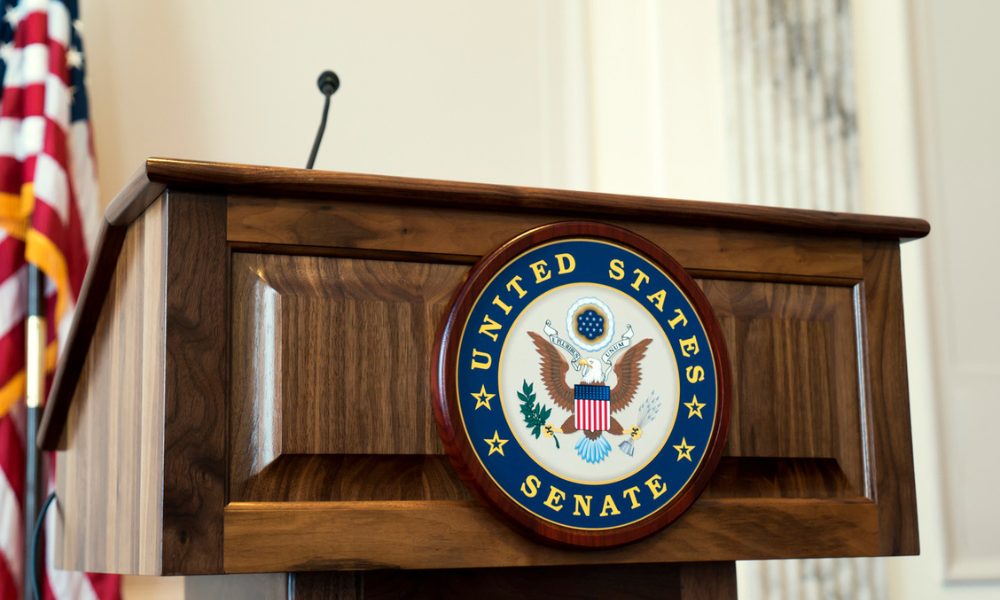A US court will consider the question of legal personhood for chimpanzees.
New York’s Supreme Court will be in unchartered territory later this month when it considers a petition in relation to chimpanzees’ rights against unlawful imprisonment.
In April, Manhattan Supreme Court Justice Barbara Jaffe granted an order to show cause in the case of two chimpanzees being held in captivity. It is the first time that a judge has made such an order in relation to a non-human animal.
The Nonhuman Rights Project, headed up by lawyer Steven Wise, will argue at a hearing on May 27 that their chimpanzee clients, Hercules and Leo, have sufficient intelligence and autonomy to warrant recognition of them having basic rights like rights against unlawful detainment and cruel treatment.
The chimps are currently held at Stony Brook University in New York, where they are used for medical experiments.
Wise, who has been working on the project for 30 years, is currently travelling Australia presenting this year’s Voiceless Animal Law Lecture Series.
“We brought in 100 pages of affidavits from experts around the world in chimpanzee cognition and they show that they are autonomous beings and they can self-determine,” Wise told Lateline earlier this week. “And autonomy and self-determination are two very important things in the common law and any being, we argue, who we can show - and we can show - are autonomous ought to be able to then live an autonomous life.”
The organisation has also filed other cases in New York on behalf of chimps living in captivity.
“It is the first time, and I've been working on it for 30 years and I can't wait for that day to come,” Wise said. “We're simply saying that it's clear in the law that an autonomous being ought to at least be a legal person for the purpose of a writ of habeas corpus and we're pretty much leaving it at that. If we can win these cases, and we one day will, then the law will begin to go in all sorts of directions that we really aren't sure.”
If successful, the case could have wide-reaching consequences and may open the door to similar claims on behalf of other species in captivity, such as pigs, elephants, whales, dolphins and other types of primates.
In April, Manhattan Supreme Court Justice Barbara Jaffe granted an order to show cause in the case of two chimpanzees being held in captivity. It is the first time that a judge has made such an order in relation to a non-human animal.
The Nonhuman Rights Project, headed up by lawyer Steven Wise, will argue at a hearing on May 27 that their chimpanzee clients, Hercules and Leo, have sufficient intelligence and autonomy to warrant recognition of them having basic rights like rights against unlawful detainment and cruel treatment.
The chimps are currently held at Stony Brook University in New York, where they are used for medical experiments.
Wise, who has been working on the project for 30 years, is currently travelling Australia presenting this year’s Voiceless Animal Law Lecture Series.
“We brought in 100 pages of affidavits from experts around the world in chimpanzee cognition and they show that they are autonomous beings and they can self-determine,” Wise told Lateline earlier this week. “And autonomy and self-determination are two very important things in the common law and any being, we argue, who we can show - and we can show - are autonomous ought to be able to then live an autonomous life.”
The organisation has also filed other cases in New York on behalf of chimps living in captivity.
“It is the first time, and I've been working on it for 30 years and I can't wait for that day to come,” Wise said. “We're simply saying that it's clear in the law that an autonomous being ought to at least be a legal person for the purpose of a writ of habeas corpus and we're pretty much leaving it at that. If we can win these cases, and we one day will, then the law will begin to go in all sorts of directions that we really aren't sure.”
If successful, the case could have wide-reaching consequences and may open the door to similar claims on behalf of other species in captivity, such as pigs, elephants, whales, dolphins and other types of primates.







